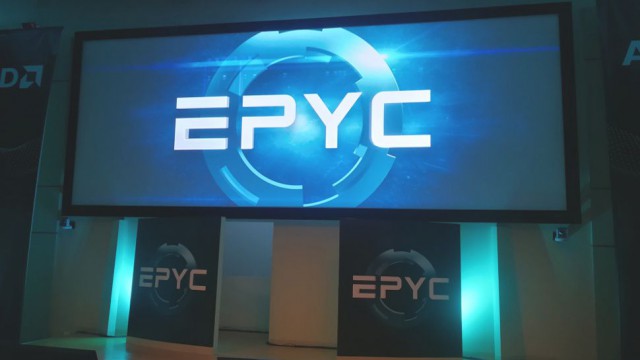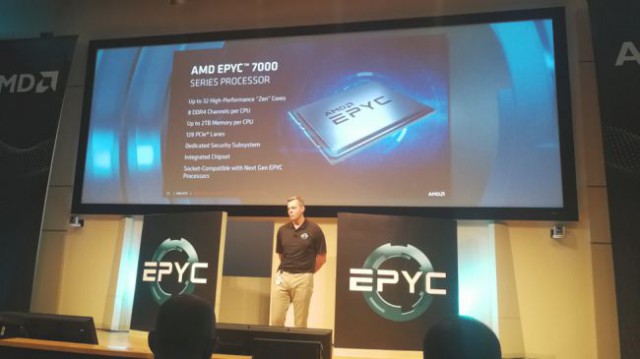AMD reveals EPYC 7000 server processor series

AMD has revealed its re-entry into the server market with a new family of super-powered data centre processors.
The US chipmaker has taken the wraps off its highly-anticipated EPYC 7000 series of products at an event in Austin, Texas today. Formerly known as Naples, the new EPYC chips will target the entire range of the server market as AMD takes aim at Intel’s current dominance.
EPYC will support up to 32 high-performance Zen cores, and comes with eight channels of memory, with support for up to 2 DIMMS of DDR4 on 16 memory channels, delivering up to 4 terabytes of total memory capacity.
However the series is scalable, allowing for customers looking for a more affordable product to choose their product depending on the number of cores.
Top of the line is the new EPYC 7601, which the company claims has set records across industry benchmark tests, including up to 47pc higher performance compared to the comparative Intel Xeon product.

Speaking to media ahead of the launch, AMD corporate vice president and general manager Scott Aylor was keen to promote the benefits of the new chips which had been specially designed for the enterprise.
"It's a very exciting time for us," Aylor noted, "it's been many years in the making, as we've been plotting and planning... we're establishing a new era in the data center."
"We can cover around 95 percent of the server market today -- we can enter at the high end but have applicability up and down the stack."
"When we thought about our plan to re-enter the data centre, we had some principles that we wanted to abide by -- we wanted to enter the market in a way that was different, a way that was powerful and would be very impactful."
"It's not just about the cores, it's about building a very compelling SoC that will scale well."
So will the new chips finally help AMD take a chunk out of Intel’s market share? AMD has already revealed a hugely strong ecosystem of partners to support the EPYC launch, with the likes of Dell, Lenovo, HPE and Samsung already on board.
"We didn't design this part to compete with Broadwell - we designed it to compete with what's coming," Aylor noted.
"We're not going to try and win every battle...but we are ready...the work we're going into is going to usher in a new era of the data center."
Published under license from ITProPortal.com, a Future plc Publication. All rights reserved.
